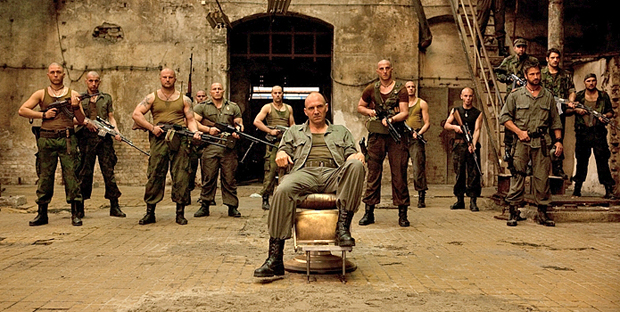Timeless and universal: words that could be used to describe the themes and exploration of the human condition in most (if not all) of Shakespeare’s works. But Ralph Fiennes’ directorial debut is neither. Coriolanus has been hurled into the twenty-first century in this bloody, bold and brutal retelling of one of Shakespeare’s lesser known tragedies.
It’s set in a city that calls itself Rome. The time is – alarmingly – close to the present day. The people are starving and war hero Caius Martius Coriolanus (Fiennes) is making a move into politics. He despises the public, and they loathe him. His extremist views provoke a riot and he is banished from Rome, only to join arms with mortal enemy Aufidius (Gerard Butler).
In an interview with STV, Fiennes explained that he “just wanted the audience to encounter a world they recognised immediately.” The first few scenes in which we see riots and news broadcasts of military action are reminiscent of the video footage of the Arab Spring which filled our screens last year. The language remains Elizabethan but unlike Baz Luhrmann’s Romeo + Juliet, it doesn’t romanticise the story; the speeches are eloquent and emotive and we are constantly reminded where, when and who we are. Vanessa Redgrave’s (Martius’ mother, Volumnia) powerful performance in the climax of the film is captured by simple direction and close-up shots. And with a cameo from Channel 4 News presenter, Jon Snow (as himself) – what more could you ask for? The ending is theatrical, however, lacks the spirit of the people, which is so pivotal throughout the first half of the film (they feature in the final scenes of the play); Fiennes has missed an opportunity to draw stronger parallels to modern day. Still, the film will appeal to anyone who likes Shakespeare, action, politics or Gerard Butler looking smouldering.
